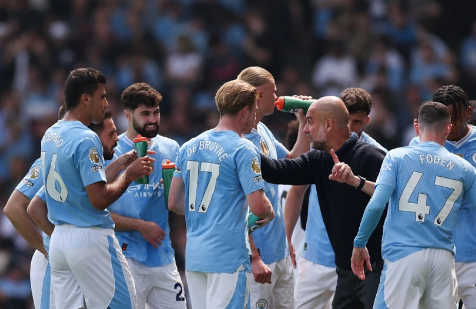Manchester City and the Premier League both claimed partial victories on Monday after the champions challenged the English top flight’s rules on commercial deals.
City had launched legal action earlier this year against the associated party transaction (APT) rules, arguing they were anti-competitive. The APT rules are intended to ensure that commercial deals with entities linked to a club’s owners reflect fair market value.
This case is separate from the ongoing hearing in which City is defending itself against 115 charges relating to alleged breaches of Premier League financial rules.
The Premier League stated on Monday that City had been “unsuccessful in the majority of [their] challenge,” and the tribunal had determined that the APT rules were both necessary and pursued a legitimate objective.
However, City responded by releasing a statement saying the tribunal had found the APT rules “unlawful” and that the league had abused its dominant position under competition law.
The Premier League, on the other hand, maintained that the tribunal had upheld the legitimacy of the rules and found them essential for the effectiveness of the profitability and sustainability rules (PSR). It said the tribunal agreed with the league’s view that transactions not at fair market value would distort competition within the league.
The Premier League also emphasized that the panel had rejected City’s argument that the rules were designed to discriminate against clubs with ownership from the Gulf region.
The league noted that the panel had only found in favour of City “in two respects”—that shareholder loans should not be excluded from the APT rules and that some “limited amendments” to the APT rules made earlier should not be retained.
Manchester City, however, argued that the panel had deemed the APT rules “structurally unfair” and had overturned certain decisions made by the Premier League to reassess the fair market value of two transactions involving the club.



